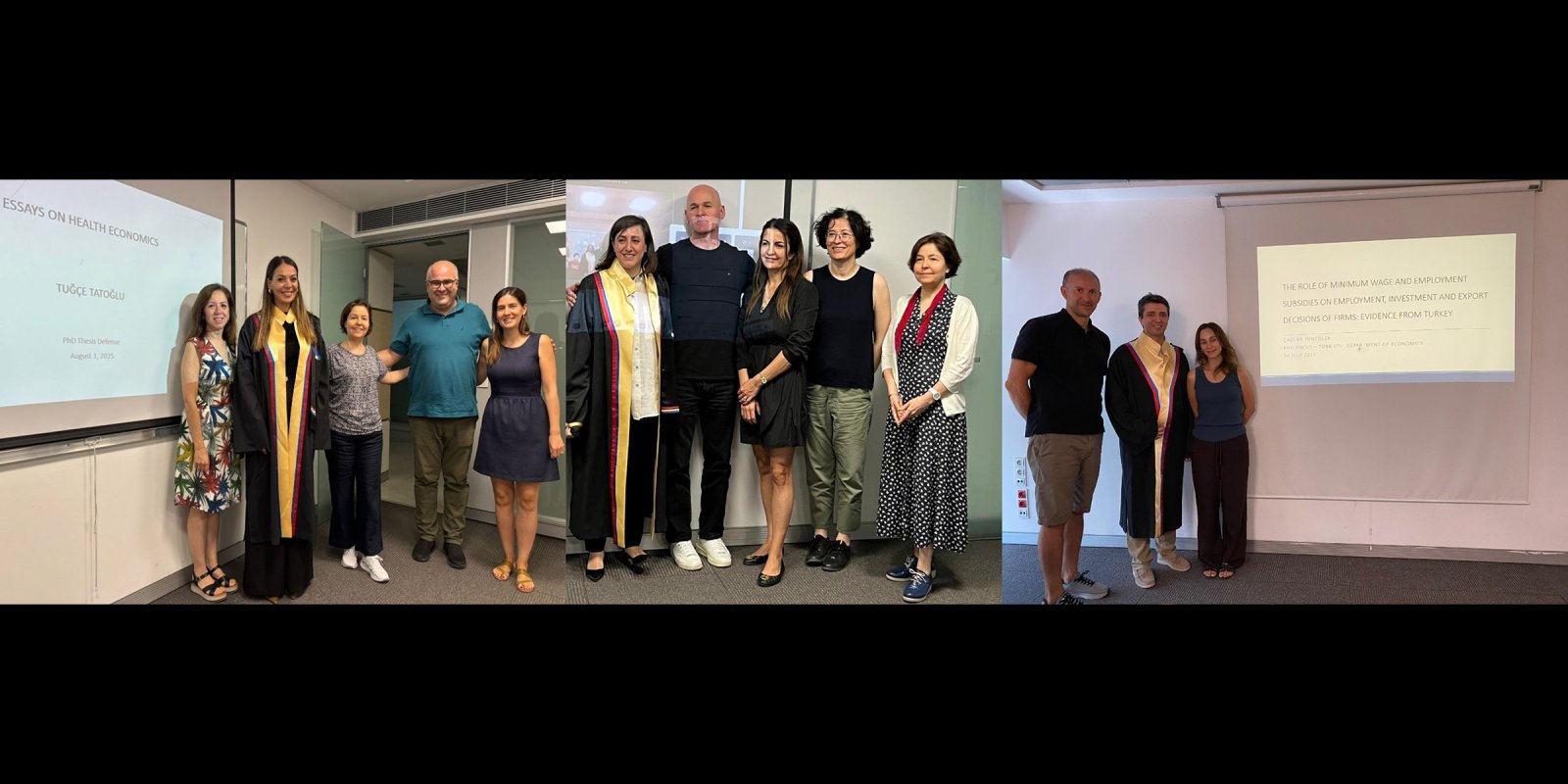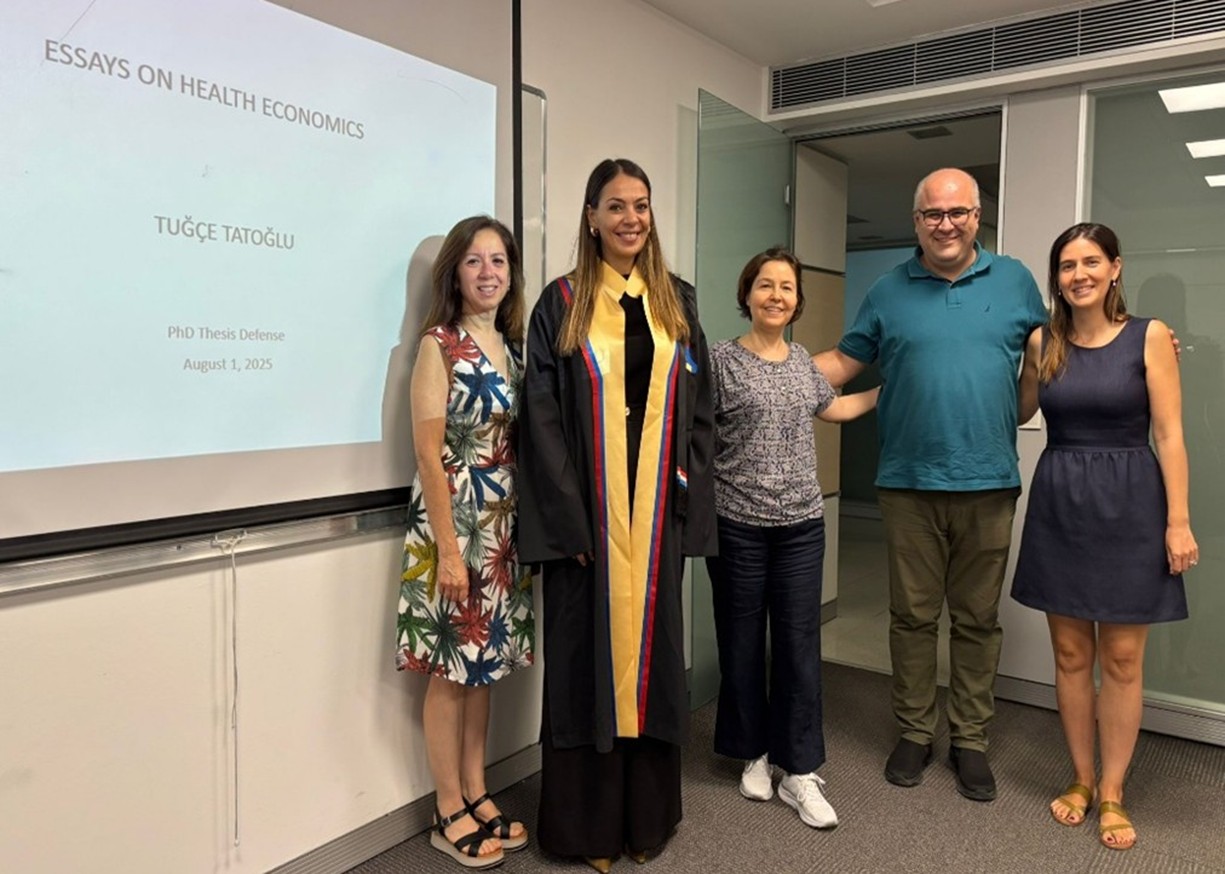New PhD Graduates from TOBB ETÜ Department of Economics
6 MONTH(S) AGO
The PhD Program in Economics at TOBB University of Economics and Technology graduated three new scholars in the Summer Term of the 2024–2025 academic year. Neslihan Kaya Ekşi, Çağlar Yüncüler, and Tuğçe Tatoğlu successfully defended their dissertations and earned the title of Doctor.
Each dissertation offers an original contribution to the field of economics and presents empirical findings with the potential to inform contemporary policy debates:
Neslihan Kaya Ekşi
Dissertation Title: Essays on Integrated Policy Frameworks in Small Open Economies
Supervisor: Prof. Dr. İsmail Sağlam
This dissertation investigates the design and effects of Integrated Policy Frameworks (IPFs) in small open economies, with particular attention to financial fragility, nominal rigidities, and policy credibility issues. By developing Dynamic Stochastic General Equilibrium (DSGE) models tailored to emerging markets, the study analyzes how monetary, fiscal, macroprudential, and capital flow management tools function jointly. The findings suggest that, especially under fiscal constraints, foreign exchange interventions and capital flow measures can enhance the effectiveness of monetary policy. The role of credibility in shaping expectations and influencing the impact of policy tools is also examined in depth.
Çağlar Yüncüler
Dissertation Title: The Impact of Minimum Wage and Employment Subsidies on Firms’ Employment, Investment, and Export Decisions in Turkey
Supervisor: Assoc. Prof. Dr. Belgi Turan
Co-Supervisor: Asst. Prof. Dr. Güneş A. Aşık
This dissertation analyzes the effects of minimum wage policies and employment subsidies on firm behavior in Turkey using comprehensive administrative microdata. The three-part study evaluates: (1) the impact of the 2016 minimum wage increase through bunching analysis, (2) the effect of a micro-firm-targeted employment subsidy using difference-in-differences methodology, and (3) the influence of these policies on export behavior through microdata techniques. The findings indicate that such interventions can affect employment and investment decisions in the short run, but that additional policy tools may be necessary for achieving long-term structural transformation.
Tuğçe Tatoğlu
Dissertation Title: Essays in Health Economics
Supervisor: Prof. Dr. Nur Asena Caner
This dissertation comprises three empirical essays that examine the impact of education policies, stressful life events, and pronatalist political discourse on health behaviors and fertility preferences. Using datasets such as the Turkey Health Survey, the German TwinLife Panel, and the Turkey Demographic and Health Survey, the study applies causal inference methods to assess individual responses. The findings show that both education reforms and political narratives can significantly influence individual behavior, while also highlighting the critical importance of controlling for genetic and familial factors in causal analysis within the field of health economics.

.jpg)
.jpg)
